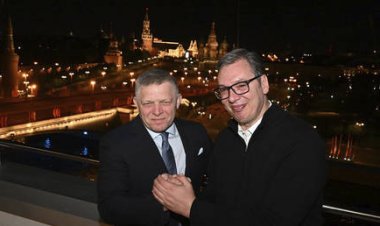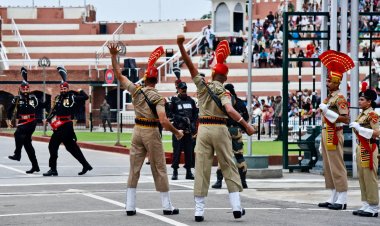Strong majority of countries rebukes Russia at UN
143 countries backed a resolution slamming Russia’s claims of annexation, a larger-than-expected result.


An overwhelming majority of countries castigated Russia on Wednesday over its claims to have annexed Ukrainian territory, with 143 voting in favor of a critical U.N. resolution after heavy lobbying by the U.S., Britain and the European Union.
Five countries voted against the resolution — Russia, and four other dictatorships: North Korea, Syria, Belarus and Nicaragua.
It was a stronger showing than many Western officials had predicted ahead of the vote. The ballot followed one of Russia’s biggest attacks on Ukraine since its invasion in February, with missile strikes in more than 20 Ukrainian cities, including Kyiv, the capital.
Among the notable yes votes on Wednesday were Bangladesh, Iraq and Morocco, which either abstained or did not vote on an earlier U.N. resolution in March condemning Russia’s invasion of Ukraine.
A majority of countries in every region — the Americas, Asia, Africa and Europe — voted to condemn Russia’s actions, but more than three dozen countries abstained or did not vote.
The abstention bloc reflects that many nations are, for political and historical reasons, unwilling to take sides in a conflict that has nonetheless strained their energy and food supplies.
Overall, the vote vindicated Western officials, who launched an extensive lobbying effort in favor of the resolution arguing Moscow is undermining the U.N.’s foundations by violating another country’s sovereignty.
“Today, it's Russia invading Ukraine, but tomorrow it could be another nation whose territory is violated,” Linda Thomas-Greenfield, the U.S. ambassador to the United Nations, told other U.N. countries in remarks ahead of the vote Wednesday. “It could be you. You could be next. What would you expect from this chamber?”
“Russia has failed on the battlefield and failed at the U.N.,” the U.K.’s Ambassador Barbara Woodward said in a statement.
“Russia will be held accountable. The EU will stand by Ukraine for as long as it takes,” Josep Borrell, the European Union’s chief diplomat, said after the vote.
Russia recently vetoed a similar U.N. Security Council resolution, leading its opponents to move the matter to the larger General Assembly, where the Kremlin wields no veto.
Vassily Nebenzia, Russia’s representative at the world body, blasted Western “hypocrisy,” and defended Moscow’s annexation claims in his General Assembly speech.
“By introducing this draft, Western states are pursuing their own geopolitical goals and are once again trying to use the members of the General Assembly as bit players,” Nebenzia said.
On Monday, the body rejected Moscow's request for a secret ballot vote on the draft resolution. The vote was 107-13, with 39 abstentions. U.S. officials and their allies took that as a good omen.
U.S. officials and their allies have spent days using a variety of mediums to talk to counterparts from other countries, urging them to back the resolution.
“We’ve been working to appeal to countries on the merits of defending the U.N. Charter – no arm twisting on our side,” a senior U.S. diplomat said, calling it “good old fashioned diplomacy.” The official was granted anonymity to discuss sensitive, behind-the-scenes activities.
In March, 141 countries voted to condemn Moscow’s full-scale invasion of Ukraine.
Djibouti — which is home to a Chinese military base — was the only country to abandon its yes vote from March, by choosing not to vote Wednesday.
China, India and Pakistan all continued to abstain. South Africa and Ethiopia led a list of 19 African abstentions.
U.S. and EU diplomats had conducted an intense lobbying campaign towards India and South Africa, but failed to shift their votes.
Russia’s traditional allies Kazakhstan, Kyrgyzstan, Tajikistan and Uzbekistan all abstained, while Turkmenistan did not vote.
Wednesday’s resolution focused on Russia’s claim that it has annexed four Ukrainian territories. The claim follows sham referendums held by Russia in the areas that reportedly included people being forced to vote at gunpoint.












